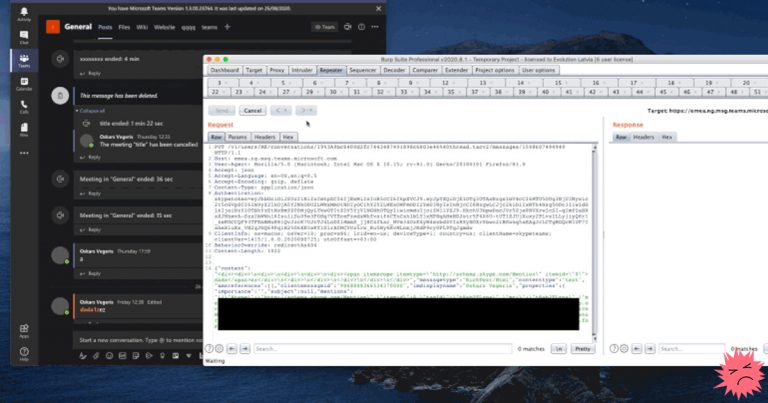Boredom as a catalyst for success
Being bored is healthier than you thought! With the help of science and experiments, we will analyze why we constantly run away from boredom, try to occupy ourselves with something every free minute: in line – telephone, in the car – radio, at home in the evening – TV series, and we don’t even imagine how much we harm ourselves in this process.
An experiment with surprising results
Researchers from the University of Virginia conducted an experiment: men and women were asked to sit alone in an isolated room and do nothing for just 15 minutes – no phone use, no listening to music, no reading, no writing, no napping, no getting up from their seat, only daydreaming or thinking.
On the table in front of the participant there was a large red button, to which wires were connected to a charged battery and to the subject himself, everything is simple: if you press the button, you will get an electric shock. Each subject was warned about the mechanics.
Moreover, before the experiment, each participant had already received an electric shock from pressing a button (everyone agreed that the experiment could be physically unpleasant). Then, the participants were given $5 dollars and given the following condition: if you don’t want to be shocked again, give the $5 back.
As a result, the sample included only those people who returned the money and preferred not to be shocked anymore – they were left in the room alone with that very button.
Do you think anyone has ever pressed a button to get electrocuted after 15 minutes of doing nothing, just out of boredom?
Results of the experiment: 25% of women and 67% of men pressed the button to get electrocuted, although before that, they paid money so that this would not happen again. One of the participants particularly distinguished himself: He did it 190 times in 15 minutes (fortunately the discharge was small).

What's going on in your head at this moment?
During boredom, the prefrontal cortex (the smartest part of the brain) decreases activity, but is activated Default mode network (the network of the passive mode of the brain), a “default” mode that does not process current tasks (hanging out at a meeting, buying yourself a coffee, watching TikToks), but is responsible for defocus when a person is inactive, resting, daydreaming, immersed in himself, or thinking about the future.
Another mode is used in parallel: Salience network (salience network), it is involved in detecting and filtering salient emotional and sensory stimuli, essentially monitoring what the default mode or mode is doing Сentral executive network (central executive network), which is involved in executive function and the performance of goal-directed, cognitively complex tasks.
And as soon as Salience network (the significance network) notices something really interesting in a particular network, then it immediately activates Anterior cingulate cortex (anterior cingulate cortex), which is involved in cognitive functions such as reward anticipation, decision making, empathy, impulse control, emotions. And all the attention goes there.

When a person is bored, he becomes hypersensitive to emotions. In their absence (it doesn’t matter: positive or negative), the brain goes into a state of anxiety, because it sees that this moment in time is obviously evolutionarily unproductive, useless and literally forces us to occupy ourselves with something and get at least some emotions.
That is why, during times of boredom, a person tries to quickly occupy himself with something in order to get bright emotions as soon as possible, even if this means giving himself an electric shock.
Alternative experiments
In a simple experiment, two participants were given a task: to come up with some kind of activity or device with a paper coffee cup in the allotted time – the participant who was allowed to get bored alone or read a telephone directory in alphabetical order always won.
It turns out that “planned boredom” helps stimulate creativity because in a moment of boredom the mind is in the process of wandering and is not focused on anything specific – it is at this moment that some new connections can be born that the brain has never established before.
It is important to note that although these experiments were reproduced, the sample of participants is not accurate; it may simply have turned out that there were those endowed with great creative potential and for them this task was doable both during and without boredom.
Other studies show that bored people are more likely to donate to charity or become a blood donor, perhaps because they begin to think more broadly about other people and society as a whole.
The main benefit of boredom!
The greatest benefit comes from boredom when we think about our future, about big goals: where are we going, what do we want, who do we want to become?
It turns out that boredom allows you to look at the whole picture of life, while the brain is not distracted by some specific cognitive process, like scrolling through a social media feed.
Next time you have some routine and boring task, think several times: is it worth listening to another “smart podcast” or maybe just think, reflect and be bored?
“How to get bored of an apartment in Moscow?”
Important disclaimer! You can say that every day you get bored in front of the monitor because of filling out reports and tables, and for some reason, you still haven’t planned your future 100 years in advance and haven’t created a wonderful business for growing purple rice in zero gravity at home.
It is necessary to distinguish between the state of constant boredom (weak dopamine receptors) and the process of boredom, and not to confuse boredom with apathy. If you are prone to boredom and constantly seek some external stimulation (eat pizza, watch reels), without developing or enriching your thinking, then your boredom will not lead to anything useful.
Want to practice being bored the right way? Give yourself half an hour of boredom, but at the same time organize the surrounding space wisely: remove all distracting devices, do not use food, drinks and other stimulants of pleasure.
In principle, you can do some monotonous process, like washing dishes, standing in the shower or walking in the park, the main thing is that this process is familiar to you and implies a small cognitive load – i.e. you did not come to an unfamiliar park, where you try to figure out how to get to a beautiful fountain and take unnecessary selfies there.
By the way, the ideal combination of triggering the process of “wandering thoughts” and the monotonous process occurs while taking a shower: thoughts jump from one to another, and hot water activates blood flow in the cervical region – this is why we have so many insights during this activity.
conclusions
Think about it, when was the last time you were bored?
when you were standing in line somewhere or waiting to see a doctor and didn't reach for your phone?
when you didn't watch a TV series before going to bed?
when you haven't opened a book on a plane / on a train / on the subway?
Being bored is more beneficial than you thought, leave yourself space for boredom and make the most of it: don’t drown out your wandering thoughts with podcasts and interviews – get bored in silence and it will give you much more.
Dream about how you would like to look, for example, at 55 years old: what you do, what are your hobbies, where you live, who you live with, and so on.
Have you imagined it? Now just think about what you need to do in life to make all this come true at 55?
PS: If you are already 55 years old or older, I have great news for you: you have already understood something in this life, since you were able to find and read this article on the INTERNET!





